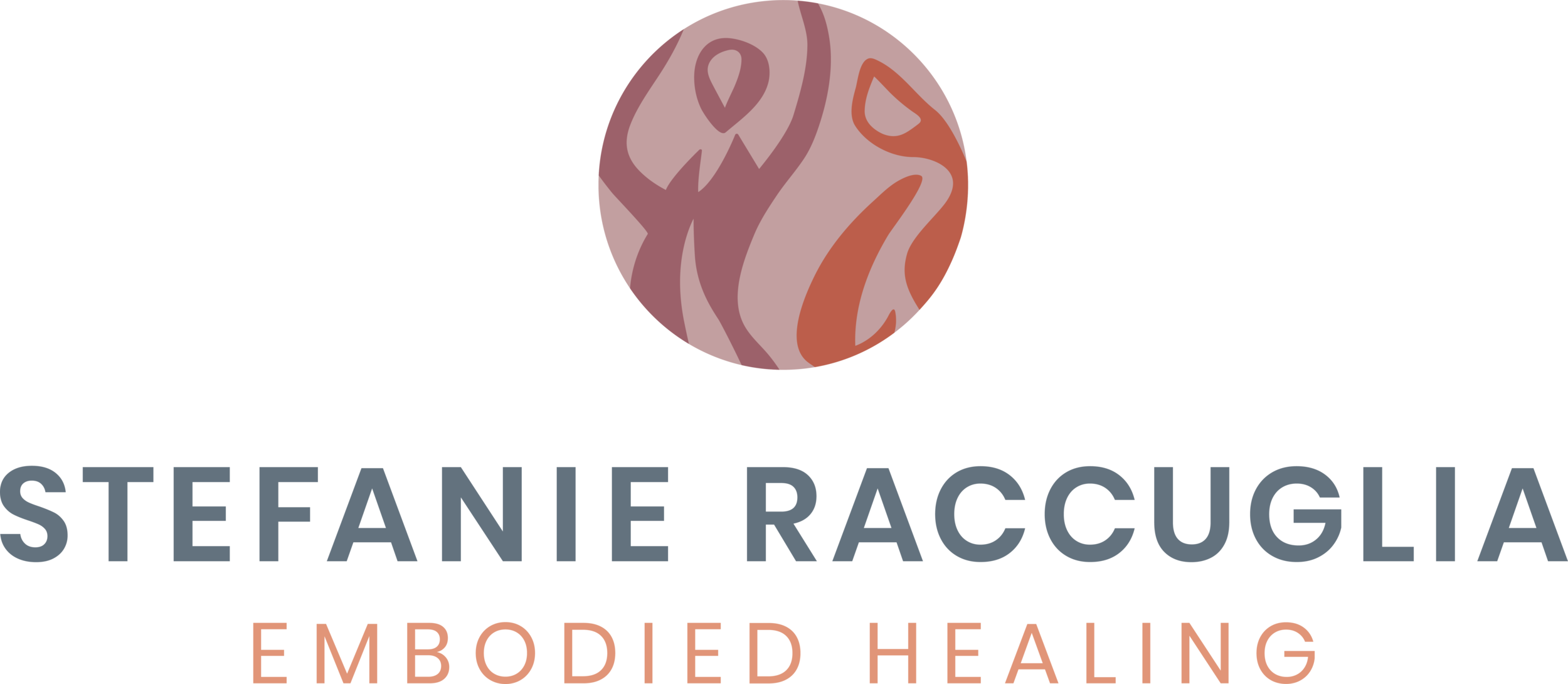Each of my clients are unique and therefore require unique attention.
Therapy is not “One Size Fits All”
(because let’s face it, nothing is actually one size fits ALL).
SomatiC Counseling PsychOlogy
Embodied Psychotherapy, or Somatic Counseling Psychology, maintains the belief that one’s awareness, connection, and relationship to their body (soma) is a fundamental agent of change, relief, and healing. The body is the center of our “knowing”.
Somatic Counseling Psychology can be highly supportive when working with Complex Trauma and sustained interpersonal violence that impacts the foundations of healthy relationship building and development of self identity.
The psychotherapeutic modalities of Body Psychotherapy (BP) and Dance/Movement Therapy (D/MT) support accessing unknown sources of pain, conflict, joy, or any other emotion, that correspond with verbal dialogue and cognition (thinking).
To learn more about Somatic Psychology visit the U.S. Association for Body Psychotherapy
Dance/Movement Therapy
Despite the use of the word “dance”, Dance/Movement Therapy (D/MT) is not indicative of a specific style/technique of dance, and it is not dance education. D/MT is a branch of Somatic Psychology that utilizes psychotherapeutic movement to challenge preconceived, inherited, or societal beliefs about self that are possibly limiting, preventing growth and healing.
Through expressive movement and other creative arts, non-verbal expressions are explored and integrated to promote self-trust, self-love, and self-compassion. This creative modality can help you grow through challenges related to self-esteem, poor body-image, boundaries, body awareness, relationship struggles, self-efficacy, vulnerability, and trust.
To learn more about Dance/Movement Therapy, visit the American Dance Therapy Associations website
Mindfulness-Based Therapy
This branch of psychotherapy invites the belief that you are inherently good and already possess the capacity and wisdom to transform suffering. Contrary to popular beliefs, mindfulness is not meditation, though meditation is a form of mindfulness. Mindfulness invites ones awareness and attention to observe your present moment experience without judgement, ridicule and self-analysis. Developing this skill will provide the tools for emotional regulation, decrease emotional overwhelm and deeper clarity of your emotional needs.
emdr
Eye Movement Desensitization Reprocessing (EMDR) works under the belief that just as the physical body is inherently designed to heal, so is the brain. Therefore, EMDR helps to activate the inherent system to process information that got stored or stuck to facilitate healing. EMDR will not erase the memory, but rather help a person to remember the story without all the emotional charge that was distressing before the treatment.
EMDR is widely researched and evidenced based modality that is the recommended treatment of choice by several international mental health organizations for healing PTSD. And as research continues to grow this modality has been shown to be helpful with clients experiencing addiction, anxiety, depression, chronic pain and much more.


